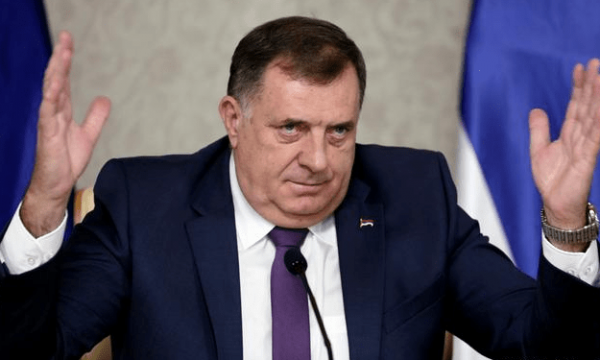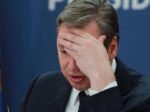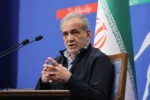Milorad Dodik is going through a phase of political weakening, but he cannot yet be considered marginalized, says Kurt Bassuener of the Democratization Policy Council in Berlin.
Speaking to Radio Free Europe, Bassuener analyzed the political situation in Republika Srpska and Bosnia and Herzegovina after Dodik was stripped of his mandate as president of Republika Srpska.
The Court of Bosnia and Herzegovina recently rejected Dodik’s legal appeal against the Central Election Commission’s decision, which removed his mandate. Previously, he was also banned from holding public office for six years.
Bassuener emphasized several factors that will determine Dodik’s future: the stance of the United States and the European Union, the role of the opposition, and whether new political figures will fill the power vacuum in Republika Srpska.
He noted that although institutions have so far functioned professionally and in accordance with the law, Dodik is trying to obstruct the implementation of decisions and keep all his options open.
According to Bassuener, the lack of leadership in Republika Srpska means the field is open for others to take power, but many may see it as a “poisoned chalice.”
Asked whether Dodik’s political career has ended, Bassuener said:
“From my analytical perspective, it’s too early to say. He is weaker than ever, but not politically dead. For 19 years he has benefited from confrontation with the international community. This time, however, the odds are not in his favor.”
He pointed out that Dodik’s miscalculations in recent years – including pushing beyond “red lines” and relying on possible support from Donald Trump’s administration – have left him vulnerable.
Regarding Russia’s role, Bassuener argued that Moscow will likely limit itself to rhetoric, since the global focus is on Ukraine.
He added that while the EU was not the main driving force behind the decisions against Dodik, it must now take the lead in preserving stability, alongside the US and the UK.
Finally, Bassuener warned that Dodik’s weakening removes the excuse other Bosnian politicians often used to avoid reforms, stressing that the international community and domestic leaders now have an opportunity to act — if they are willing to seize it.







